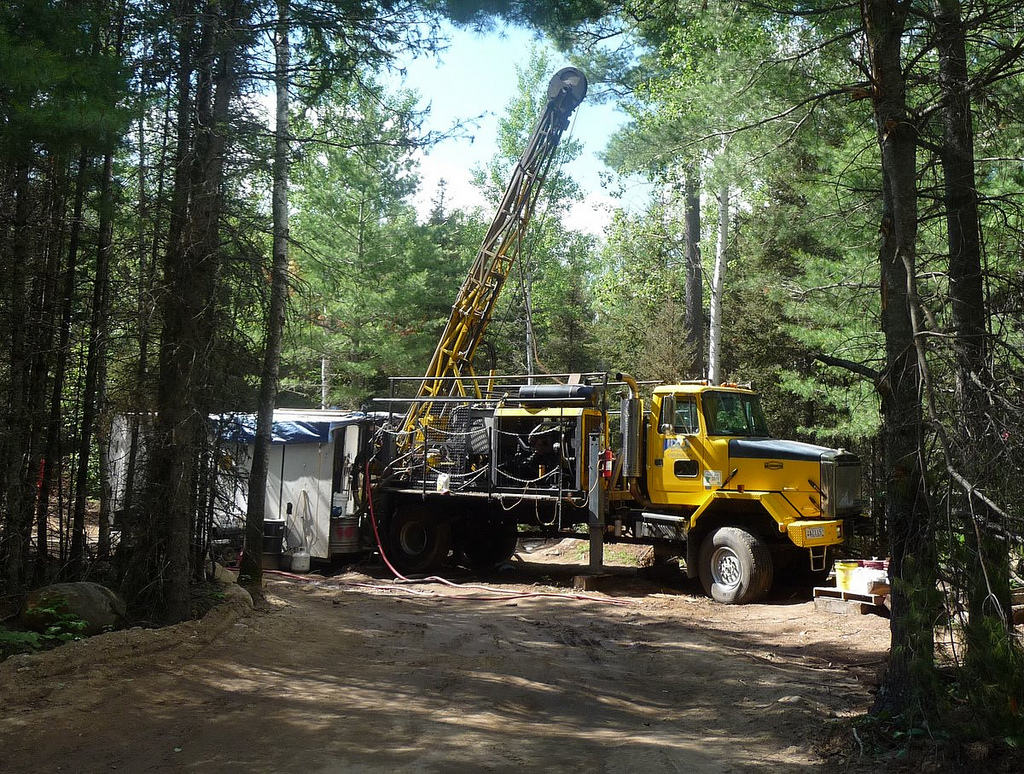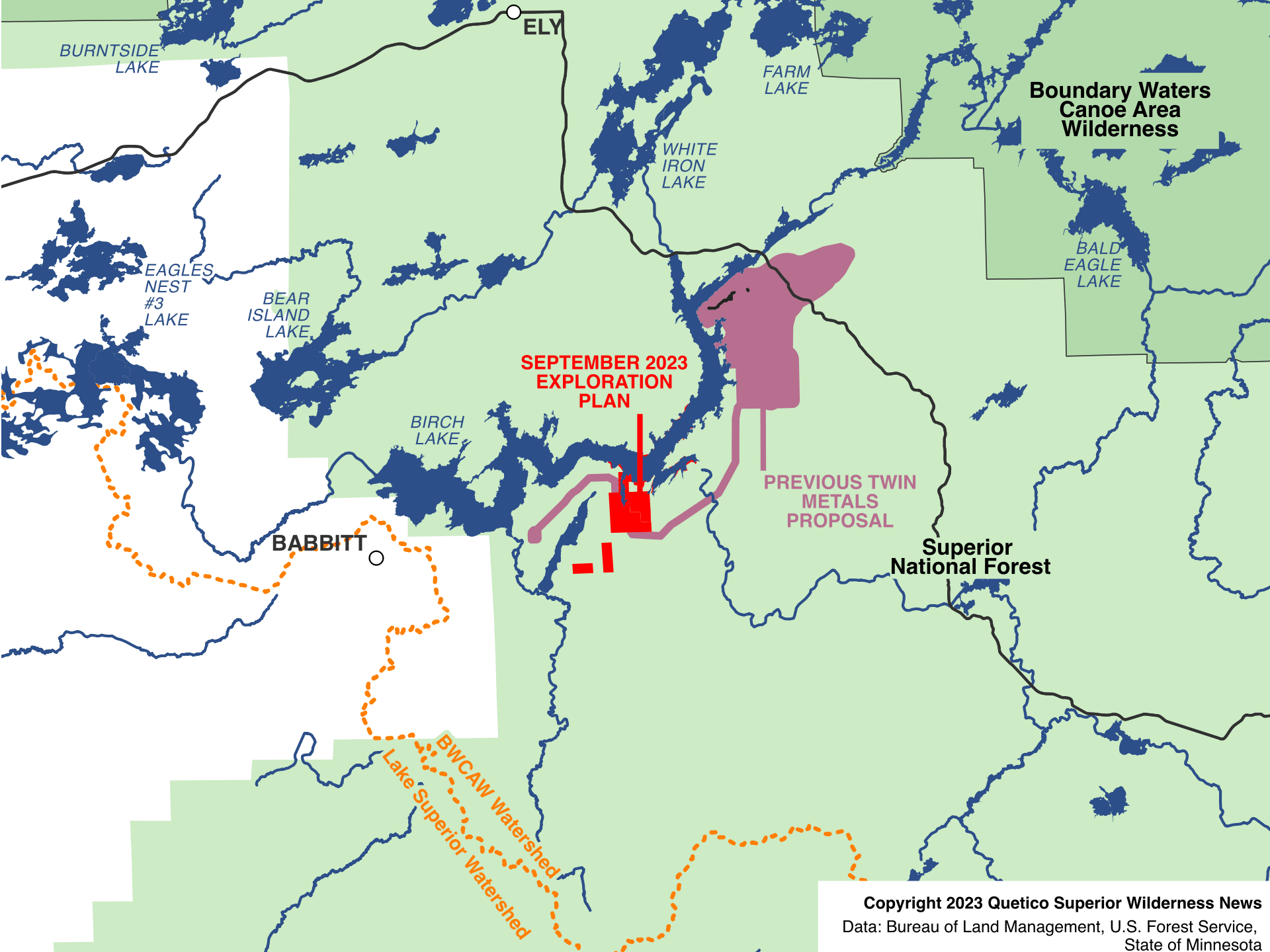
Twin Metals is not giving up on its proposed copper-nickel mine near the South Kawishiwi River in northeastern Minnesota. Despite several setbacks, the company recently applied to the state to conduct exploratory drilling on the south side of Birch Lake.
While the Interior Department has enacted a 20-year ban on mining on federal lands in the watershed of the Boundary Waters Canoe Area Wilderness, and refused to renew federal mineral leases, the lands and minerals now targeted by Twin Metals are not affected because they are owned by the state of Minnesota.
Different deposit
The deposit the company is seeking to explore now is about an eighth the size of its previous deposit, but may have more rare metals like platinum and palladium, according to experts. Twin Metals said it is simply exploring its options.
“Our continued goal is to gain a deeper understanding of Twin Metals’ mineral resources and assess our potential to supply critical minerals needed to support Minnesota and our nation in a sustainable transition to a cleaner future,” company spokeswoman Kathy Graul told the Star Tribune.

Calls for caution
The latest effort brings to attention legislation that has been introduced at the Minnesota State Capitol in recent years, seeking to prohibit such mining activities on state lands in addition to the now-protected federal acres. Bills were introduced in both the state house and senate last January.
“Passing this bill is essential to protect the economic, recreational, and ecological gem that is the Boundary Waters Canoe Area Wilderness,” said co-author Rep. Sandra Feist at the time. The legislation failed to advance in the 2023 session but could be considered again next year.
Environmental advocates responded to the latest exploration application by urging elected officials to finalize protection of the wilderness and its watershed. The Campaign to Save the Boundary Waters launched an action alert calling on Governor Tim Walz to reject the proposal.
“This proposal not only undercuts critical and hard fought for protections for the Boundary Waters, but would expose our Wilderness and the Wilderness edge businesses’ and communities’ way of life to a disastrous scenario,” the letter reads.
